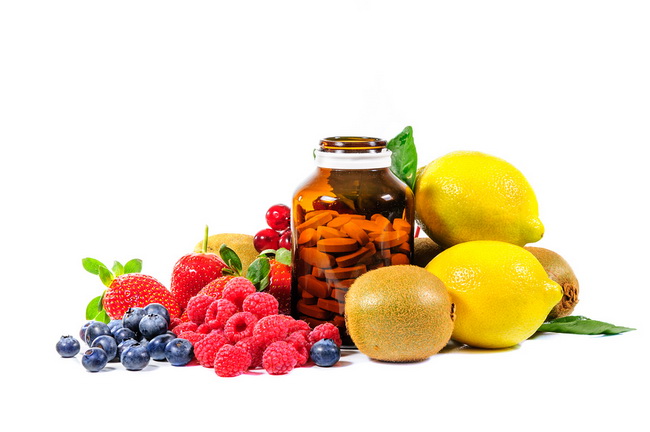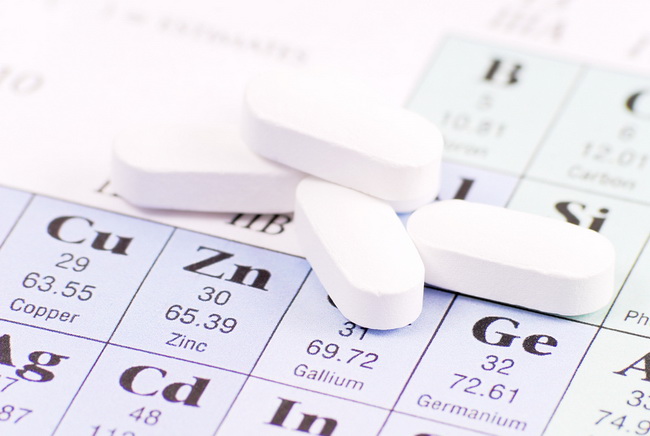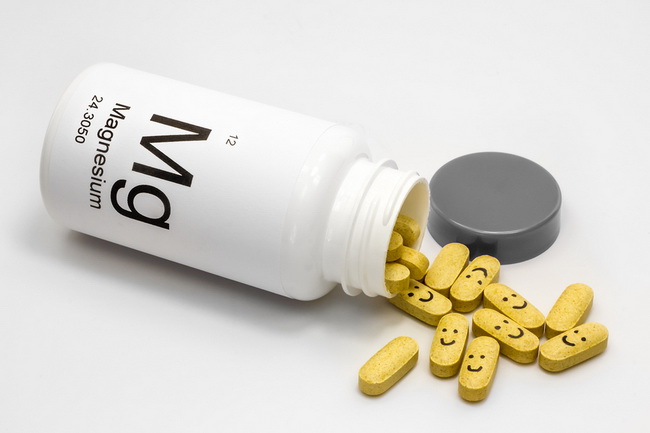- Make It Yourself Lavender Heart-Shaped Bath Bombs!
- 20 Things You Never Knew About “Down There”
- 12 Best Foods For Those Suffering From Arthritis Pain
- 12 Personal Hygiene Mistakes Almost Everyone Makes (Mom Never Told You About #4!)
- 15 Medicinal Plants And Herbs From The Cherokee People
- 12 Mind-Blowing Benefits Of Drinking Coconut Water During Pregnancy
- 12 Outstanding Winter Foods That Won’t Fatten You Up Like A Christmas Turkey
Could This One Thing be the Cause of Your Depression?

Photo credit: bigstock.com
Have you ever looked around you and wondered where all your happiness and joy went to? It’s as if your get up and go got up and went!
If you believe you suffer from depression, you are not alone. However, before you decide to see your doctor and ask for some of those happy pills, perhaps the only thing that is really missing in your life is…vitamins and minerals?
Even though we are surrounded by food everywhere in America, many of us, especially women, suffer from some sort of nutrient deficiency. Americans weigh, on average, 26 pounds more than we did 60 years ago, but we simply aren’t getting the nutrients our bodies need form the foods we are consuming.
Even those who are eating what is considered to be a healthy diet find that they can have nutrient deficiencies due to our depleted soils.
The Centers for Disease Control Second Nutrition Report came to the conclusion that there are about 11 nutrients that many Americans simply do not consume sufficient amounts of, and without those vital nutrients, you can end up sick, feeling tired, and certainly feeling depressed.
So if you have been battling depression and you are seriously considering getting on the happy pill diet, or if you are already using prescription medications for depression, ask your doctor to test you to see if you are lacking in any of the nutrients listed below. Do that before you damage your body even further by popping those pills from Dr. Feelgood.
1. Vitamin D
This is perhaps one of the biggest deficiencies around. A lack of this basic vitamin has been linked to autism, dementia, cancer, and depression. Most people who live in cold weather parts of the country often become deficient in the fall and winter months when there is little sunlight and even less desire to go outside sometimes even when the sun is out! Although the National Institutes for Health state that most adults need about 600 IUs of vitamin D each day, a more accurate number should be about 5,000 IUs for the best possible mental health.
2. Iron
It has been estimated that about 20 percent of all adult women suffer from an iron deficiency. Lack of this mineral causes symptoms such as depression, fatigue, irritability, and a lack of concentration. Be certain that you are getting at least 8 to 18 mg of iron each day. Ladies, especially if you are of child-bearing age, be sure you get the maximum amount!
Continue to Page 2

Photo credit: bigstock.com
3. Vitamin C
Most of us think that we are getting enough of this important vitamin, but we rarely are. Although many animals are able to synthesize vitamin C, human beings cannot, we must get it from our foods. We also must spread it out a bit during the day as our bodies can only use so much at one time. Excess vitamin C is simply removed from the body via urine so consuming a huge 1,000mg of vitamin C first thing in the morning probably isn’t doing you as much good as you think it is. You can consume more citrus fruits, potatoes, green peppers, strawberries, cantaloupe, kiwi fruit, and tomatoes to get your vitamin C, but if you want to be certain you are getting a sufficient amount, consider cutting that 1,000mg pill in two and taking half in the morning and the other half in the afternoon or evening.
4. Omega-3 Fatty Acids
Many people think that omega-3s are only important for those who want to look after their heart, but these fatty acids have a big impact on your mental health too. This is another thing that your body cannot make on its own, so you need to eat the right foods to get enough of it. Eat two or three servings each day of fatty fish like sardines, tuna, salmon, and halibut or a handful of walnuts every day. If you aren’t a big fan of fish, take fish oil supplements to be sure you are getting plenty of this vital fatty acid.
5. B-Complex Vitamins
One study conducted in 2009 found that more than 25 percent of older women who were diagnosed as being severely depressed were deficient in one or more of the B vitamins. These often overlooked vitamins are extremely important for our mental health, probably much more so than we realize. Although you can get B vitamins in eggs, milk, seafood, meat, chicken, and fish, many vegetarians will find that getting enough of these vitamins next to impossible. Don’t single out any one B vitamin, either, as these tend to work best in combination. Take a good quality B complex supplement to be sure your brain is getting everything it needs from these important vitamins.
Continue to Page 3

Photo credit: bigstock.com
6. Amino Acids
Amino acids are the building blocks of protein and are vital for the proper functioning of your brain. When you don’t get sufficient amounts of amino acids in your diet, feelings of depression, lack of concentration, and a general feeling of lethargy can easily take over your life. You can get plenty of amino acids naturally by eating more seeds, nuts, beans, and red meat.
7. Zinc
This little mineral is vital to so many functions in our bodies, more than we ever imagined. Not only is zinc vital for proper digestion, it repairs proteins and helps our DNA reproduce. It also improves immune function and control inflammation.
8. Selenium
Selenium is vital for optimum thyroid function. It’s also a very important antioxidant that keeps the polyunsaturated acids from becoming oxidized within the cell membranes. Adults need at least 55mg of selenium in order to keep our physical and mental abilities at their absolute best.
Continue to Page 4

Photo credit: bigstock.com
9. Magnesium
Along with vitamin D, magnesium is another nutrient that many people are deficient in; as much as 50 percent of us, according to some studies. This is because magnesium is difficult for the body to absorb and American’s overconsumption of sugar, salt, caffeine, and alcohol depletes the body’s magnesium reserves. This mineral is the best mineral for fighting the constant damage caused by chronic stress. Adult males should be consuming about 400mg each day and women about 320mg each day. Find out ways to boost your magnesium level.
10. Iodine
Your thyroid cannot function without iodine, it’s a fact of life, and our thyroids control just about every single system in the body including; temperature, energy levels, immune system function, brain function, and metabolism. When you have insufficient quantities of iodine, your thyroid will not work properly and this leads to numerous symptoms, including feelings of depression.
SEE ALSO: Natural Ways to Overcome Your Depression Naturally
11. Folate
If you have been consuming antidepressants but they aren’t working as they should, your entire problem could be a lack of folates in your diet. Folates lessen the effectiveness of prescription antidepressant drugs and in fact, many psychiatrists now prescribe folates in addition to their antidepressant pills. A lack of folates in your diet will also have you feeling as if you are depressed, so you should consider this first. Folates can be found in dark leafy greens, such as spinach, beans, citrus fruits, and legumes. Average adults need about 400mg every single day.
You should note that some nutrients have their upper limits as well and that some supplements can interfere or interact with prescription drugs, so always consult with your doctor before you begin consuming any type of herb, vitamin, or mineral supplements.
References:





























